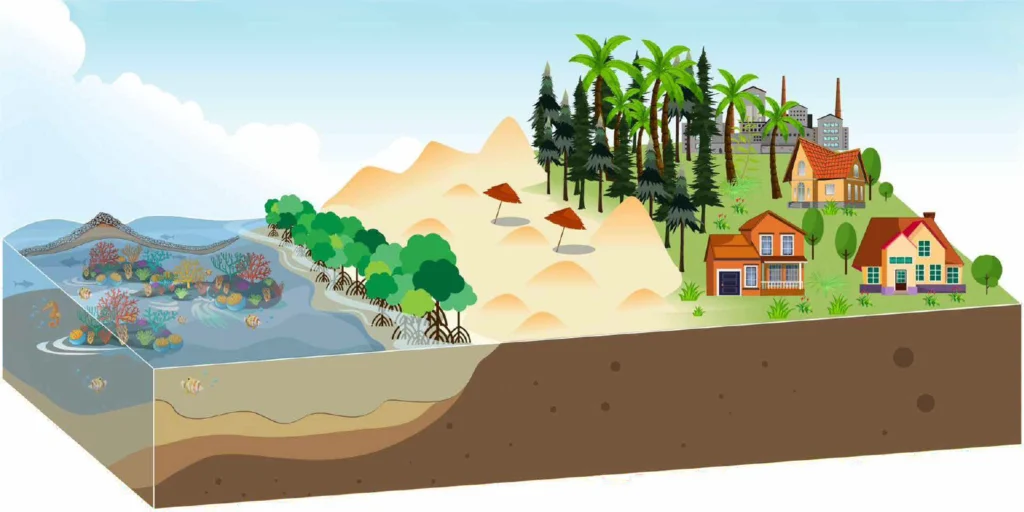Resilienture’s (“RESI”) vision of the world is one where humanity can thrive in the face of climate change and natural disasters.
RESI’s mission is to create a resilient world where communities can thrive despite the challenges of climate change and natural disasters.
With a special focus on coastal regions, we aim to design and, crucially, finance projects that protect at-risk populations, eco-systems and promote sustainable development and circularity.
We implement innovative and NbS like engineered reefs, mangroves, dunes and dykes to protect shorelines.
We ensure the practical realisation of projects, integrating sustainable housing, energy, food security and clean water solutions to support coastal communities.
Safeguarding at-risk populations on islands and coastal regions globally deploying the following NbS:

75.9m
67,300
2,576
668
827,855
USD$701m
USD$2.8bn
2,023,032
11.3mte
306